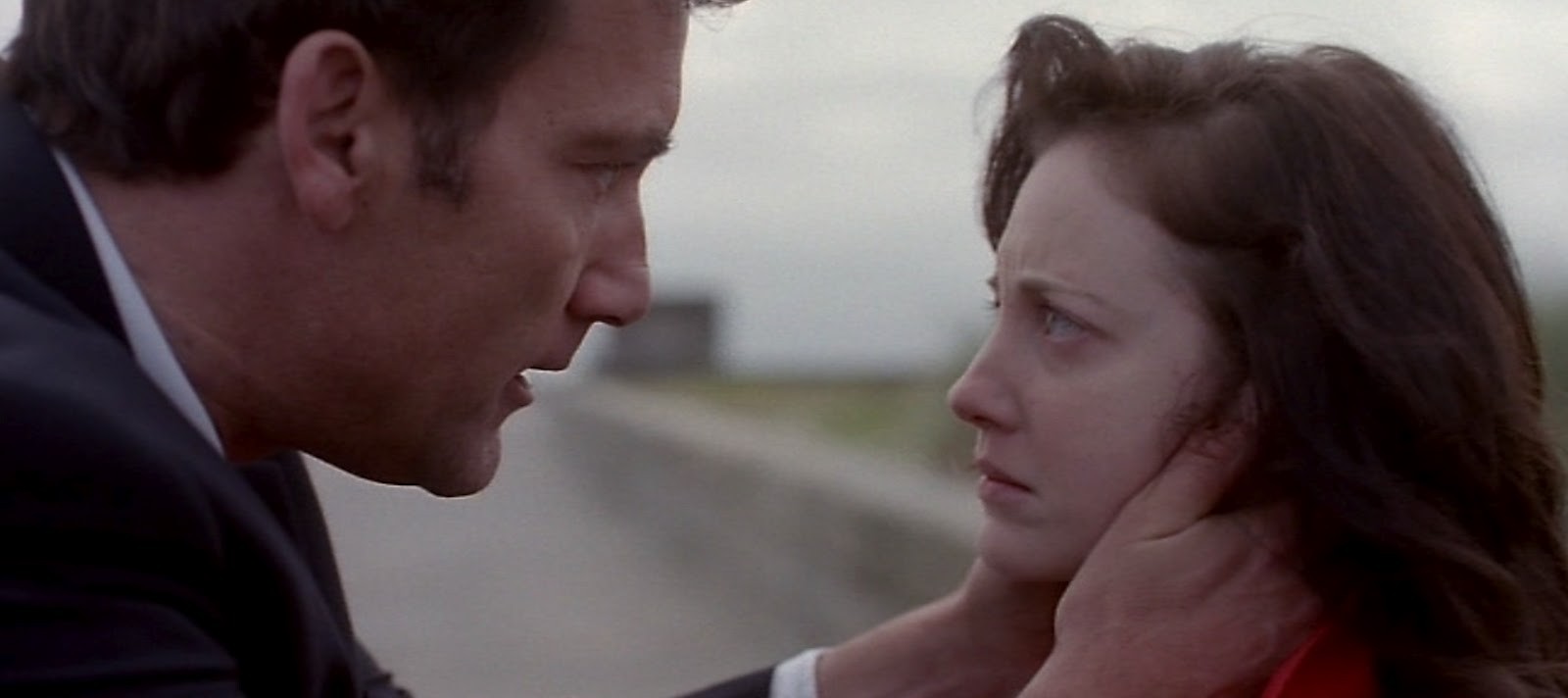Beginning in Belfast in 1973 and based on the novel by Tom Bradby, Shadow Dancer mainly takes place in the early nineties and focuses on one family and their involvement with the Troubles in Northern Ireland. It stars Andrea Riseborough as the main character Colette McVeigh and Clive Owen as the British MI5 agent assigned to deal with her, supervised by Gillian Anderson in support (who played an MI7 chief in ‘Johnny English Reborn’ last year) who has spent the last eight months profiling Colette and working on a strategy to use the girl against her own Republican activist brothers. The scenario feels real, but the biggest problem with the film is that the characters do not.
Clive Owen gives Colette his real name on their first meet in order to gain her trust, for example. Clive Owen is dependently good throughout, but the central performance from Riseborough leads to other problems. We are given the very strong sense she is someone heavily involved in the Troubles and violent IRA activity, and yet she seems strangely disinterested, or disconnected from most of what’s going on around her. It creates a disingenuous feeling that permeates the whole film, as if the entire whole is an attempt to artificially create tense drama, rather than the audience witnessing a dramatic scenario happening to real people. The film has a grainy texture to it, making it seem older than it should, and the protagonists are given an equation to solve that only has a few possible solutions, but it still takes them a pretty long time to solve it.
Unfortunately, anyone who was in the wrong place at the wrong time and watched ‘W.E.’ (11) and was, presumably, scarred by it, may find it impossible to shake the associations with Andrea Riseborough’s last cinematic outing. The film was so bad laws should be passed to prevent Madonna from ever opening her mouth to talk about British history again, or from ever making another film for that matter. In it, Riseborough played Wallace Simpson, and the film aimed to paint the American woman who seduced a British monarch, and forced his abdication from the throne, in a better light than is usually cast upon her. The overriding memory is that she comes across as a wanton slut in the film, but the same sort of hopelessly vague and insincere aura that surrounded her performance there, seems to have many ‘shadows’ here. That said, her Belfast accent is very good, and remains so throughout. It’s pretty rare to find really convincing and consistent accents on the big-screen as actors transcend different nationalities, though quite frequently during the film the dialogue becomes muffled and difficult to make out.
Director James Marsh, who won an Oscar for the documentary ‘Man on Wire’ (Sean Connery describes this as one of his favourite movies incidentally), has created a fairly linear, small scale piece that he’s tried to give a distinctive feel. He hasn’t completely failed, the beach scenes are lovely and memorable, but it’s only the suitably dramatic ending that saves it from complete mediocrity. Documentaries don’t always start at the very beginning, and perhaps here it would have been better to save the opening flashback for a while and simply introduce the characters more. It wouldn’t be at all surprising if Marsh had been very much inspired by ‘Tinker, Tailor, Soldier, Spy’ (11), and was trying to emulate a similar feel for this work. The book is probably a lot better.

